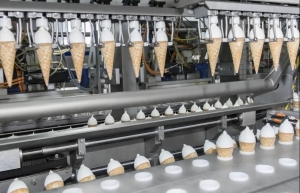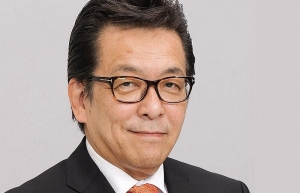Tech surge bodes well for more mergers and acquisitions
Could you shed some light on the M&A activities in the tech sector this year?
 |
| Rizwan Khan, managing partner at Acclime Vietnam |
In 2024, Vietnam’s tech sector has witnessed a notable surge in M&A activities, particularly within the AI and data centre segments. This growth is driven by both domestic and international stakeholders eager to capitalise on the country’s burgeoning digital economy and favourable regulatory landscape.
A standout transaction this year was Singapore’s M1 Limited acquiring a 70 per cent equity stake in ADG National Investment and Technology Development Corp. The $28 million deal highlights M1’s strategy to penetrate the Vietnamese market, leveraging ADG’s extensive ecosystem of over 2,000 local agents and partners to offer advanced computing, storage solutions, high-performance networking, and innovative IT services.
In the AI sector, strategic alliances are shaping the market. Notably, FPT Corporation partnered with Nvidia to establish a $200 million AI factory in Vietnam, aiming to create a hub for AI research and development and bolster the nation’s capabilities in this space.
The data centre segment is also attracting substantial investment. For instance, Alibaba has announced plans to invest an estimated $1 billion to construct a data centre in Vietnam. This move aligns with the company’s strategy to expand its cloud services footprint while complying with local data storage regulations.
What are the factors driving the enthusiasm of foreign investors to invest in Vietnam’s tech sector?
Several factors are fuelling foreign investor interest in Vietnam’s tech sector. Firstly, Vietnam’s strong macroeconomic growth and political stability create a secure and attractive investment environment. The country’s robust GDP growth is further supported by government policies designed to pull in foreign direct investment.
Secondly, Vietnam’s strategic location in Southeast Asia provides exceptional market access to Asia, Europe, and the Americas. This geographic advantage is bolstered by the country’s participation in major trade agreements, which enhance investor confidence.
Thirdly, Vietnam’s young, skilled, and cost-competitive workforce is a key asset. The country’s emphasis on STEM education ensures a steady pipeline of talent for tech enterprises.
Additionally, the government’s incentives, including tax breaks and streamlined regulatory processes, are designed to entice investment in the tech sector. These incentives, combined with Vietnam’s commitment to digital transformation and infrastructure development, make the country an increasingly appealing destination for tech investments.
Lastly, Vietnam’s expanding domestic market, driven by a growing middle class with rising disposable income, presents substantial opportunities for tech companies. A prime example is SK Group’s $300 million acquisition of ISCVina Manufacturing. This investment by the South Korean conglomerate underscores the allure of Vietnam’s semiconductor industry and highlights the business-friendly environment in regions like Vinh Phuc province.
What is the outlook for tech M&A activities in Vietnam in the near future?
The outlook for tech M&A activities in Vietnam is highly optimistic, supported by several key factors. Globally, the tech sector has demonstrated remarkable resilience, with deal values increasing by 54 per cent in the first half of 2024 despite a 36 per cent drop in deal volumes. This trend highlights a shift towards high-value transactions, prioritising quality over quantity.
Digital transformation across industries is a major driver of M&A activity. Companies are leveraging acquisitions to integrate advanced technologies, enhance their digital capabilities, and maintain competitive advantages. The AI and cloud computing sectors, in particular, are seeing heightened activity as firms seek to adopt cutting-edge technologies.
Macroeconomic pressures, including high interest rates and inflation, are also encouraging companies to pursue M&A as a strategy to achieve cost efficiencies and scale. In the tech sector, this translates to strategic acquisitions aimed at consolidating market positions and expanding into new geographies.
Private equity (PE) dynamics are another critical factor. With over 27,000 portfolio companies globally, many PE firms are under pressure to exit investments and raise new funds. This is expected to fuel a wave of tech M&A deals as PE firms look to capitalise on attractive valuations and growth opportunities.
Vietnam’s tech sector is not only thriving independently, but also driving innovation across other industries. For instance, advancements in AI and data analytics are transforming manufacturing, logistics, and healthcare, enhancing efficiency and fostering innovation.
The convergence of digital transformation, macroeconomic pressures, and private equity activity is expected to drive continued growth in M&A deal volume and value. This will reinforce the tech sector’s pivotal role in the global economy and its critical contributions to various industries in Vietnam.
 | Traditional M&A entities buoyed by positive outlook Several notable deals have emerged in Vietnam’s dealmaking landscape, signalling a rebound in such activities. |
 | M&As pick up pace in sectors from food to energy A raft of transactions are still taking place in the Vietnamese market across different industries, from food to renewable energy, signalling improved sentiment from investors. |
 | M&A figures can be rejuvenated through stability Mergers and acquisitions activity saw a decline during the first nine months of 2024, as rising inflation and economic slowdowns affected dealmaking confidence. Masataka “Sam” Yoshida, head of the Cross-border Division of RECOF Corporation, spoke with VIR’s Thanh Van about how this trend is expected to be temporary. |
What the stars mean:
★ Poor ★ ★ Promising ★★★ Good ★★★★ Very good ★★★★★ Exceptional
Related Contents
Latest News
More News
- New rules ease foreign access to Vietnam equities (February 05, 2026 | 17:29)
- Vietnam’s IFC creates bigger stage for M&As (February 01, 2026 | 08:16)
- Game startup Panthera raises $1.5 million in seed funding (January 29, 2026 | 15:13)
- Cool Japan Fund transfers shares of CLK Cold Storage (January 28, 2026 | 17:16)
- Nissha acquires majority stake in Vietnam medical device maker (January 26, 2026 | 15:40)
- BJC to spend $723 million acquiring MM Mega Market Vietnam (January 22, 2026 | 20:29)
- NamiTech raises $4 million in funding (January 20, 2026 | 16:33)
- Livzon subsidiary seeks control of Imexpharm (January 17, 2026 | 15:54)
- Consumer deals drive Vietnam’s M&A rebound in December (January 16, 2026 | 16:08)
- Southeast Asia tech funding rebounds on late-stage deals (January 08, 2026 | 10:35)

 Tag:
Tag:



















 Mobile Version
Mobile Version